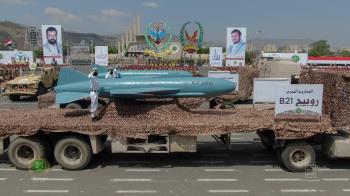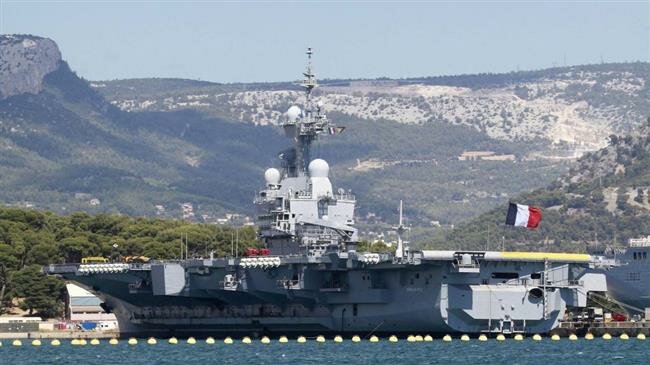Alwaght- The US plan to build a naval coalition in the Persian Gulf has been met with either silence or rejection, the New York Times reported.
The US and Britain have been shopping for support from Asian and European allies to corner Iran in the Strait of Hormuz, a vital passage way for global oil supplies.
The Trump administration has pledged to bring Iran's vital oil exports down to zero, but the shipments have continued to reach major customers, especially in Asia.
Tensions in the Persian Gulf flared up after a series of suspicious attacks on oil tankers, following the US deployment of a new naval group and B-52 bombers to the region amid claims of unspecified Iranian threats.
The UK waded into the standoff by seizing an Iranian oil supertanker off Gibraltar at the US request, according to local officials. Iran responded by detaining a UK-flagged oil tanker in the Persian Gulf.
Many other European leaders, however, have worked to keep their distance from President Donald Trump and his policy of “maximum pressure” on Iran to avoid being seen as aiding that policy, the New York Times reported.
The US is trying to project its campaign as a bid to secure the Persian Gulf, but "the Europeans argue that Washington created the problem in the first place by trying to kill off Iran’s oil exports", the paper said.
US Secretary of State Mike Pompeo last week called on Japan, Britain, France, Germany, South Korea, Australia and other nations to join a maritime force to patrol the Strait of Hormuz.
On Wednesday, German Foreign Minister Heiko Maas said that his country would not be joining the Americans. Spanish El Confidencial newspaper, citing an informed diplomatic source, also said Madrid had "no intention of participating in a mission led by the US in Hormuz".
Neither have France, Italy nor Sweden responded favorably to Britain’s suggestion of a European escort force, separate from the Americans, even after Iran seized the British-flagged tanker.
“Germany will not take part in the naval mission proposed and planned by the United States,” Maas said.
“We are in close coordination with our French partners. We consider the ‘maximum pressure’ strategy to be wrong. We do not want a further military escalation; we will continue to focus on diplomacy.”
On Friday, Japan's Mainichi newspaper cited unidentified government sources as saying that Tokyo had decided not to deploy any warship to the Persian Gulf.
As its key Asian ally and a major regional naval power, Washington is keen for Japan to play a major role in its proposed maritime force.
Japan’s government would likely face opposition at home to any military venture that could put its Self Defense Forces in harm's way or threaten the well being of Japanese living in Iran.
"The refusals have underscored the divergent policies toward Iran and are aggravating distrust and resentment on both sides," the New York Times said.
“The Trump administration has put us in a situation where everybody is talking of a risk of war, of creeping escalation,” Volker Perthes, director of the German Institute for International and Security Affairs in Berlin, said.
“We won’t do anything that doesn’t go in that direction. A coalition that would look like it was directed against Iran would not be likely to reduce tensions,” said an adviser to the French defense minister.



























